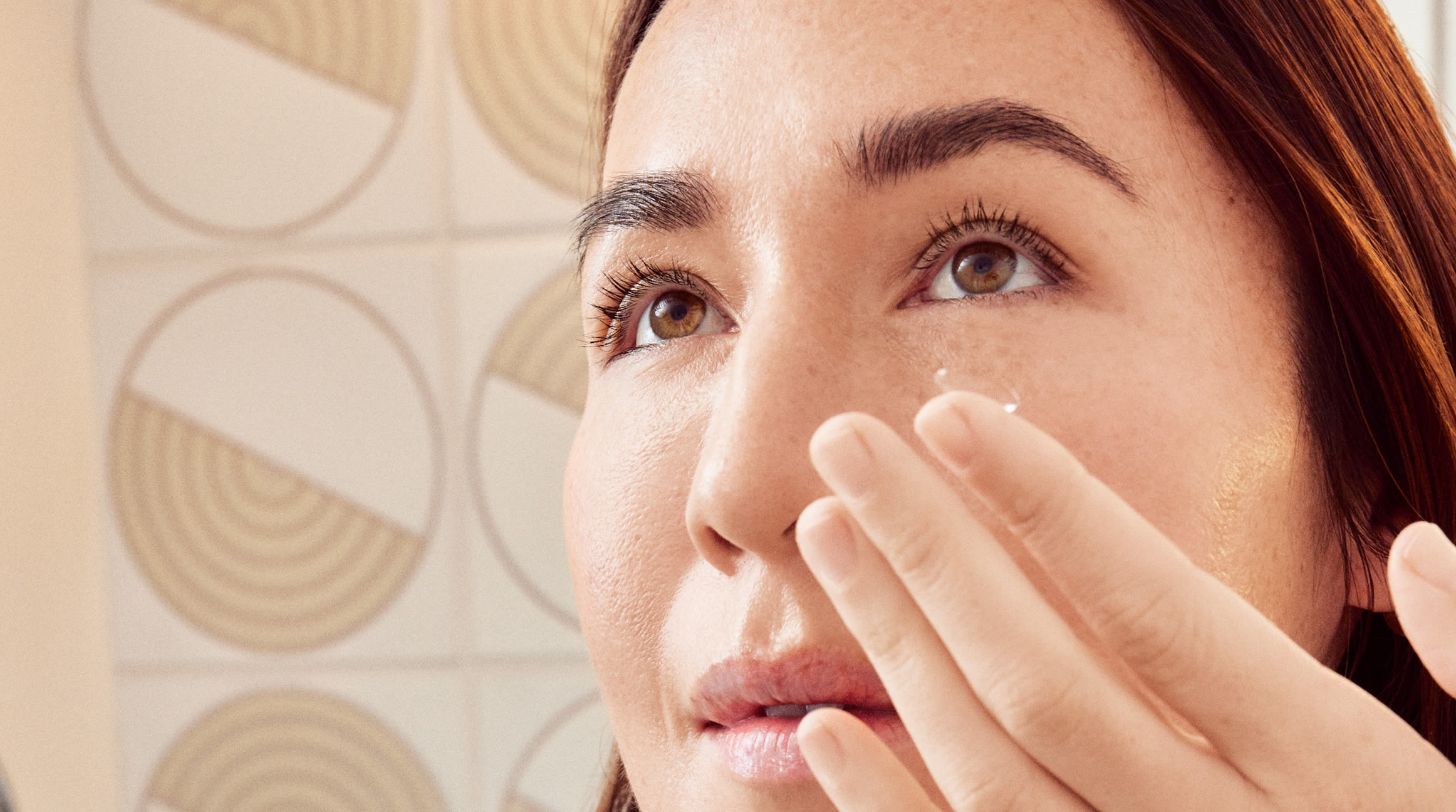The Best Vitamins and Supplements to Improve Eye Health

Have you ever wondered if there is a correlation between eating fruits and vegetables, taking vitamin supplements, and preserving eye health? You can be rest assured that a balanced diet full of healthy nutrients, minerals, and vitamins is not just great for long term health of your body, but in particular, what we eat can influence eye health too. This is key to keeping your eyes shining brightly, sharply focused, and generally healthy. Studies show that a diet rich in vitamins, minerals, and nutrients can increase chances for eyes maintaining proper function for years to come.
Can Eye Supplements and Vitamins Improve Vision Health?
The short answer to whether or not vitamins or even eye supplements may improve vision health is yes. However, be mindful that vitamins alone do not cure or necessarily prevent all conditions, but a well-balanced diet full of nutrients like Vitamin A, Vitamin C, and Omega 3s are great tools to use for proactive health overall. In general, everyone can benefit from consuming dark, leafy green vegetables like kale, spinach, or collards that contain lutein, a component known as “the eye vitamin.”
You can consume Vitamin A in the form of foods like carrots, milk, eggs, squash or pumpkins that contain powerhouse vitamins for eye health. Many vitamins and supplements are helpful for preventing free radicals and can even prevent acceleration of the degeneration of vision. So yes, we can finally confirm what parents often suggested to their children that carrots and eating our veggies are definitely good for your eyes and health!
Seven Best Vitamins for Healthy Eyes
Having a nutritious and well-balanced diet full of foods like fruits and vegetables, nuts, seeds, and healthy oils can have a positive overall benefit to your health. Additionally, important vitamins for eye health found in these foods can add a tremendous boost to your vision.
Vitamin A
Vitamin A, found in foods like, salmon, broccoli, dairy, and squash, is a powerhouse for keeping age related macular degeneration (AMD) at bay. AMD is when the cells in the eyes take a decline in cellular damage inside of the retina. Vitamin A in general is a great overall nutrient that is present in plant based foods that help reduce the risk of free radicals.
Beta Carotene
Beta carotene is the pigment that gives orange and yellow food their color (like squash, cantaloupe, sweet potatoes, or carrots). Beta carotene serves the eyes by slowing the progression of macular degeneration of the eyes. Beta carotene converts to Vitamin A which is central to good eye health and vision.
Vitamin C
Most people immediately think of oranges, orange juice, or other citrus fruits as a primary source of Vitamin C, but it is also found in strawberries, spinach, bell peppers, kiwi, and cabbage. Vitamin C is an important vitamin that provides immune boosting antioxidants, and slows the progression of cataracts (cloudiness formed on the eye’s clear lens) and reduces the risk of macular degeneration. Vitamin C also lends itself to creating structure to the eyes.
B Vitamins
B vitamins like B6, B9, and B12 present a great overall benefit to the eyes including lowering the risk for inflammation and reducing the chances for age related macular degeneration. You can find B vitamins through foods such as legumes, eggs, beets, and spinach naturally.
Omega-3 Fatty Acids
Your eyes and vision can be protected through fatty acids and oils like those found in salmon, sardines, flaxseed oil, soy, nuts, and tuna. Omega 3s are some of the best eye vitamins that occur naturally and can help prevent age related vision loss.
Omega 3s oils contain fatty acids called docosahexaenoic acid (DHA) which is critical to the eyes’ function. Omega 3s can help prevent glaucoma, which is when fluid and pressure build up in the eye that causes damage to the optic nerve and even blindness. This fatty acid also helps those with dry eyes or lack of tear production.
Vitamin E
Vitamin E can help reduce the opportunity for age related cataracts (a coating that forms on the eye causing cloudy vision). Vitamin E is also helpful in the fight against free radicals in the eye that can cause damage.
You want to have a diet full of Vitamin E or use eye supplements that can help reduce the risk for cataracts. Focusing on Vitamin E in the form of almonds, spinach, collard greens, pumpkin, peanuts, red bell peppers, and sunflower seeds, which are all good sources of vitamins for eyes.
Lutein and Zeaxanthin
Your retina health can be helped by having food rich in Lutein. Lutein is a carotenoid, the compound that lends plants its color. Corn, eggs, spinach, and pistachios are high in lutein. Zeaxanthin is found in your diet, if you consume kale, spinach, and broccoli. Zeaxanthin can help slow the progression of age related macular degeneration and decrease the risk of cataracts.
Best Supplements for Eye Health
Your balanced diet including fruits and vegetables should be the main focus of absorbing vitamins for eye health. But if you suffer from vitamin deficiency or have trouble maintaining good health, sometimes a supplement will be necessary. You will want to talk to your doctor before taking vitamins and supplements to ensure the ingredients are good for you or do not conflict with any medications you may currently be taking.
Tips for Incorporating Eye Health Vitamins & Supplements
As with any supplement or new vitamin program, always consult your doctor or medical provider before starting a vitamin regimen. Vitamins and supplements are not necessarily a cure-all but can be taken to accompany a diet heavy in vitamin rich foods as found in fruits and vegetables. If you have a diagnosed eye health condition, you may be instructed by your health care provider to take a supplement. Under the care of your doctor you may need the supplement to slow the progression of the disease or alleviate certain symptoms.
Schedule Regular Eye Exams
Keep and maintain a regular eye exam schedule especially if you are diabetic or suffer from any ailment that causes poor eye health. Diabetics can suffer from vision loss or impaired vision when not closely monitoring blood sugar.
Incorporate Exercise
Having a regular exercise or fitness routine can lend itself to overall good health and normal blood pressure which should make eye function steady.
Avoid Smoking
Do not smoke or start a smoking cessation program to help save your long term eye health. This is a good practice in addition to generally following a healthy lifestyle. Smokers can suffer from cataracts and macular degeneration. Reduce the risk of eye disease and eliminate the need to use supplements to boost eye health by taking care of your body as a proactive measure.
Limit Screen Time
Also be mindful of screen time from your cell phone, tablet, laptop or desktop computer. Limit the time on your devices which can help reduce the risk of eye degeneration. If you follow the 20-20-20 rule where you rest your eyes every 20 minutes by looking 20 feet away for 20 seconds continuously, you will help your eyes in the long run. Keep eyes healthy through these practices in order to avoid the potential overuse or reliance on supplements.
Wear Sunglasses
And as always, the best preventative protection for eyes in addition to supplements are to wear sunglasses to block out ultraviolet radiation that can cause damage to healthy eyes. Use protective lenses when working on home improvement projects or construction.
Maintain Healthy Eyes With Hubble’s Help
Vitamins or supplements that support vision are just a part of taking care of your comprehensive eye health.
Hubble is your one-stop shop for finding a Hubble participating doctor near you, getting affordable lenses you'll love, and stylish frames that won't make your wallet hurt. Our free shipping and conveniently easy-to-manage subscription service make getting contacts or a fresh pair of lenses a breeze.



